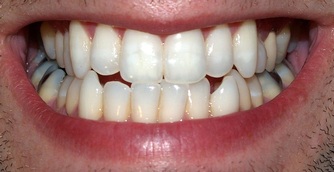Needs of elderly patients must not be forgotten, says dentists' leader
The needs of elderly patients must not be forgotten as the development of a new dental contract in England continues, the leader of England’s high street dentists has warned.

Speaking at the 2013 British Dental Conference and Exhibition, Dr John Milne, chair of the British Dental Association’s (BDA’s) General Dental Practice Committee, said the health needs of older patients are often understated.
The new contractual arrangements, which are being developed by testing at around 100 pilot sites across England, must take proper account of elderly patients’ needs if they are to be cared for effectively, he said.
Dr Milne warned that any evolution of the dental workforce must also take account of the needs of older patients, adding that the nature and pace of any change must be properly planned to meet the high demand for complex restorative dental care that is likely to continue for decades to come.
Dr Milne said: “The expansion of the pilots to include further sites earlier this month marks a new phase in their development in which the detail will start to be developed. As we continue through that phase it is vital that the needs of all patient groups are remembered, and that we ensure they can be cared for effectively.”
Last year, the BDA produced the 2012 Check-up policy document in response to concerns from the BDA’s membership about whether those responsible for planning and delivering dental care were prepared for the evolving oral health challenges of the ageing population.
In 2003, the BDA made 21 recommendations to improve the oral healthcare of older adults. Ten years on and the BDA claims that only seven of the 2003 recommendations have been met in full.
Robert Kinloch, chair of the British Dental Association’s UK Healthcare Policy Group said: “Despite the high policy profile of the health needs of the ageing population and the resulting impact on health and social care services, it remains clear that many older adults are underserved by those responsible for their health and wellbeing and many concerns remain about the future.
“Although many older adults have good oral health and access to services, a significant percentage rely on services provided through care homes, arranged by family members or carers, or are limited in accessing services as a consequence of reduced mobility.”
He added: “Poor access to routine preventive and expert dental care can lead to poor oral health, and this can have a devastating impact on overall health. This can manifest itself in many ways; from pain and ulcers caused by ill-fitting dentures to dehydration and malnutrition caused by difficulties with eating. There is also the very important social aspect of oral health.
“Older adults need to interact with their peers and carers and poor oral health can have a negative impact on their ability to do so and affect their self-esteem, exacerbating problems of isolation and loneliness. Good oral health is as much a matter of dignity as a health necessity. Other non-dental factors will also have an impact, such as an increase in the prevalence of Alzheimer’s and other dementias.”
Latest News
 29-Jul-24
Dementia Bus gives carehome.co.uk staff insight into life with dementia
29-Jul-24
Dementia Bus gives carehome.co.uk staff insight into life with dementia
 01-Mar-24
Find out the top care homes in 2024
01-Mar-24
Find out the top care homes in 2024
 21-Mar-23
UK's top care homes in 2023 revealed
21-Mar-23
UK's top care homes in 2023 revealed
 03-Jan-23
carehome.co.uk launches free care helpline
03-Jan-23
carehome.co.uk launches free care helpline
 13-Dec-22
5 mins with Emily Whitehurst, chief operating officer for Constantia Healthcare
13-Dec-22
5 mins with Emily Whitehurst, chief operating officer for Constantia Healthcare